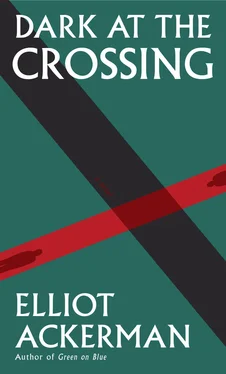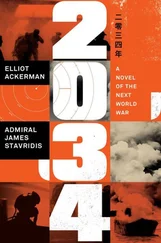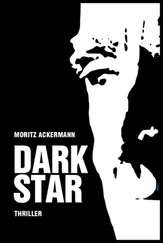He checked the phone. Not even five minutes had passed, but he had a response. He felt his stomach twist with anxiety, fearing the message that awaited him and what acting on that message meant:
Saladin,
Bring them to regional headquarters in Kilis the morning after next. Ensure they have the entire four thousand.
Peace be upon you,
Athid
Haris felt obliged to write back immediately, Athid’s message having arrived as promptly as it did. He knew this final response would set him on an uncertain course with a purpose no larger than returning Daphne to the point where she’d lost her daughter. Had he permitted his mind to linger too long on any of this, he wouldn’t have been able to go further. He wrote the reply, thanking Athid, explaining he was glad to provide him with another fighter. Then, and thinking only to curry favor with this brutal man, Haris mentioned that the new recruit’s enthusiasm for the cause compelled him to pay the full five thousand, understanding such support was needed at this crucial time.
He sent the message.
Again Haris lay on his back, unable to sleep, his fingers laced over the phone. He didn’t want to check for Athid’s answer. He would wait until morning. Instead, he wondered why he had so rashly offered the extra thousand. What irrational urge did he harbor to ingratiate himself to everyone, even someone as pitiless as Athid? As Haris struggled to understand himself and this impulse, a single thought came clearly to him: I am an American.
“Where in the hell is Kilis regional headquarters?” said Amir. He tossed the Nokia across the sofa bed like a dirty shirt.
Haris stood by the window in silence.
Amir walked over to the refrigerator and stuck his head inside. “We don’t have anything to eat!” he called toward Daphne.
Ignoring Amir, she came through the bedroom door, clutching an empty book bag beneath her arm and a suitcase in her hand. From the dresser in the living room, she packed an extra shirt and blanket. She took an appraising look at Haris. After a moment of digging through the bottom drawer, she removed one of Amir’s sweaters. She held it up to Haris’s frame, checking it for size. She packed it too.
“What are you doing?” asked Amir, standing from the refrigerator, his face flushed.
“Gathering what we’ll need,” answered Daphne.
Amir stormed across the apartment. He snatched the Nokia from the sofa bed. He tapped at its screen a few times, trying to unlock it. “Remind me of the password?” he asked.
Haris didn’t answer right away. He gazed down into the street, where the black Peugeot was parked. Washed from the storm, it glistened in the rising sun. Amir had returned from Marty’s just before morning. After Haris had sent his response to Athid, he had waited up for Amir, secretly hoping a breakdown or some other minor disaster had delayed him, subverting their trip to the border. But now, looking at the glossy black Peugeot, Haris felt luckless. If he wanted something destroyed, that seemed enough to preserve it, and what he wanted preserved — Saied, Kareem, his own sister — well, he thought, it’s dangerous to want anything. Wanting seemed enough to turn chance against him.
Amir asked again for the Nokia’s password.
“Nineteen eighty-four,” said Haris.
“Like Brave New World, ” said Amir with disgust. “The Daesh’s brave new world is the backward old world — public stonings, women veiled head to toe in the niqāb, the rejection of any idea not in the Qur’an. The Daesh are delusional.” A fresh charge of red colored Amir’s cheeks. “Daphne, please don’t cross with them.”
“That’s Huxley,” she said.
“What’s Huxley?”
“ Brave New World. Aldous Huxley. 1984 is Orwell.”
“What difference does it make?”
Daphne set the book bag and suitcase by the door. “You don’t know what you’re talking about. That’s what difference it makes.” She looked at Haris as if she wanted him to take sides.
“Saied was born in 1984,” said Haris.
Amir took two steps from the foot of the sofa bed, toward the window. He planted himself in front of Haris, his hands balling into fists. That his wife and Haris would side against him seemed a greater indignity than what had happened the day before, when Haris had spent the night with her. Haris now anticipated the tense exchange he had managed to avoid when exiting Daphne’s bedroom on that morning. Though he knew Amir needed him, Haris also felt an urge to raise his hands to his face, to protect himself.
But Amir said and did nothing. He just stood there making fists.
Daphne crossed the room, taking Amir’s hands in her own. “Don’t you see?” she said. “Who we go with makes no difference. The Islamists hijacked the revolution from the Free Army. If it weren’t for the Free Army, Kifa might still be with us. They’re all the same, and none are good.”
As Daphne made this last point, her gaze quickly, almost imperceptibly, fell onto Haris. For him, her words were a question: Are you the same? Or are you good?
Before Haris could answer, Amir did. “I am your husband. I won’t stop you from going. And I am not the same as them, I just wish I—” He swallowed to steady his voice.
He went to the dresser and began laying out more clothes for Haris.
—
The morning traffic was light,and for several blocks they drove alone. At the turn off Yusuf Bulvari, they passed the site of the accident. No trace of the wreckage remained. Haris sat in the backseat, his head resting against the window, his eyes wandering out to the gutters, which had dried, leaving banks of grime ribboned with silt. Spreading for block after block, washed up on these banks, were the paper boats from before — remnants of the children’s game. Haris counted the stranded boats and, slowly, drifted to sleep.
When he woke they were parked on Paşa Bulvari, just in front of Elit Baklava. The Peugeot idled at the curb. Amir sat in the driver’s seat, thumbing through the emails on Saied’s Nokia. When Haris stirred, Amir slid the phone into his pants pocket.
“Where’s Daphne?” Haris asked.
“She wanted to get a gift.”
“For who?”
“The man you’re meeting, Athid.”
Daphne stepped from the café’s glass front. The shopkeeper from before, the one with the swooping mustache, came to the door. His squirrel face strained, a smile spreading across it, as he waved goodbye to Daphne. She turned to glance over her shoulder, flitted her fingers back and left the shop. With her coat girded at the waist and her sunglasses over her eyes, Haris thought she looked glamorous, like a transplant from the thick fashion magazines his sister read. Daphne swung an expensive canvas bag of baklava by its toggled handles.
She climbed into the front seat.
“I don’t think a gift is necessary,” said Haris while Amir steered the Peugeot toward their next stop.
“Manners are always necessary,” replied Daphne, glancing toward the backseat from in front of her headrest. “And good morning,” she added with a smile. “I think the gesture will be appreciated. Don’t you, Amir?”
Daphne fixed her gaze on Amir, who concentrated on the road, saying nothing. They made the turn onto Emek Cadessi, just a few blocks from Marty’s office. As if from across an empty room, Amir called out: “I know how to find the Daesh’s regional headquarters.”
“How’s that?” asked Haris, sitting up from the backseat, leaning over the parking brake.
“Remember the boy, Jamil? He’ll know. It’ll be for a price, but he’ll know.”
Читать дальше












